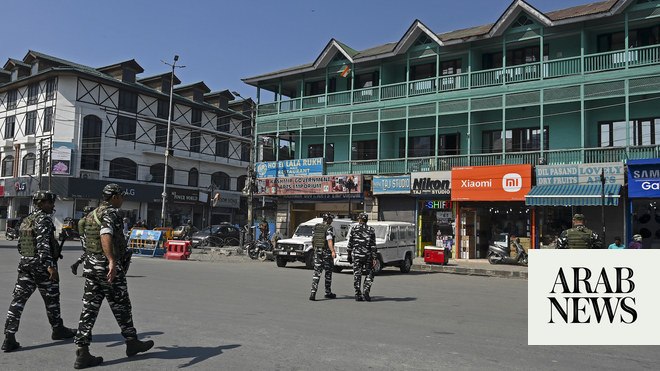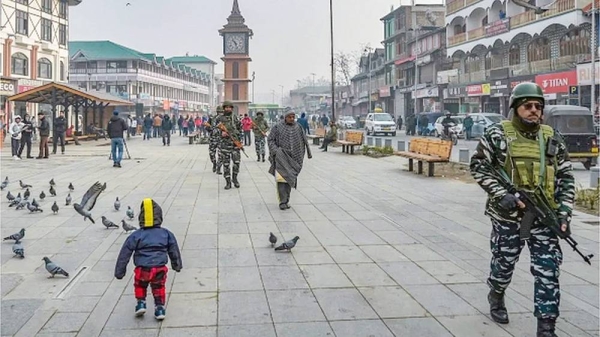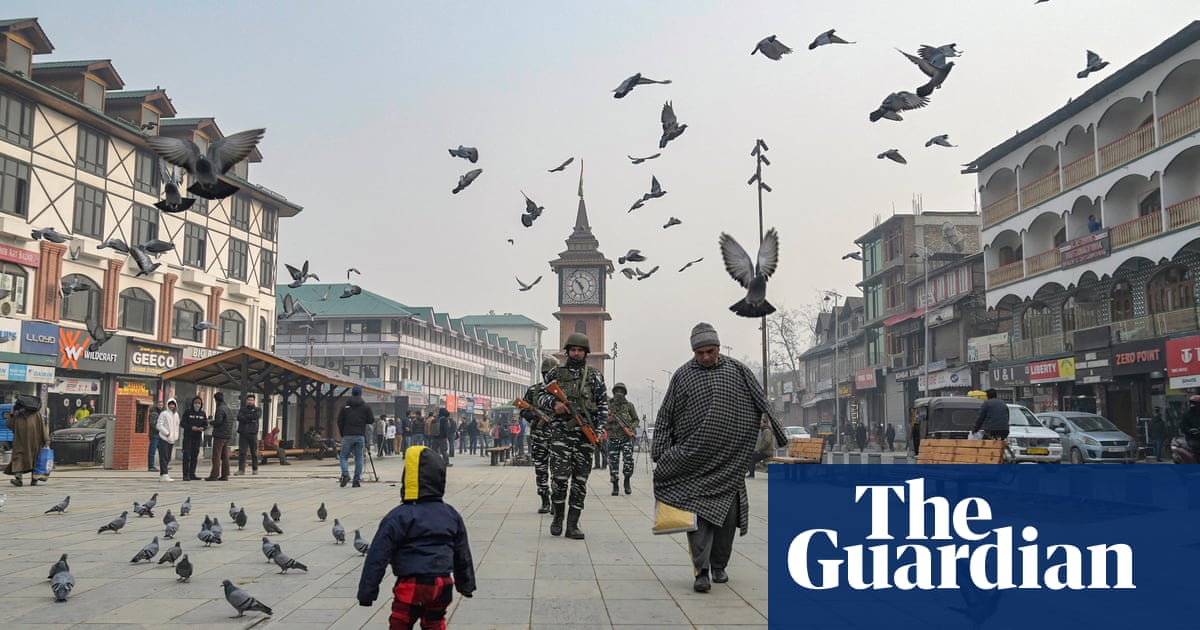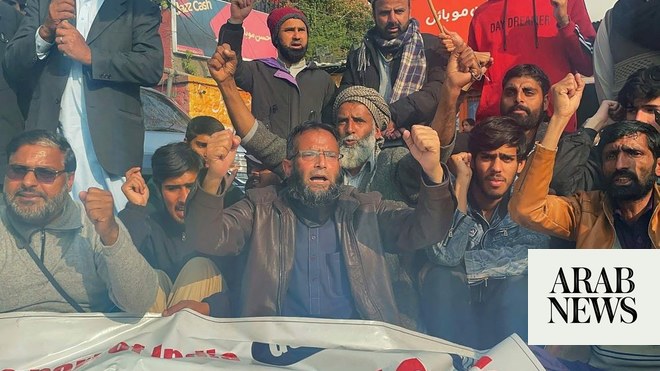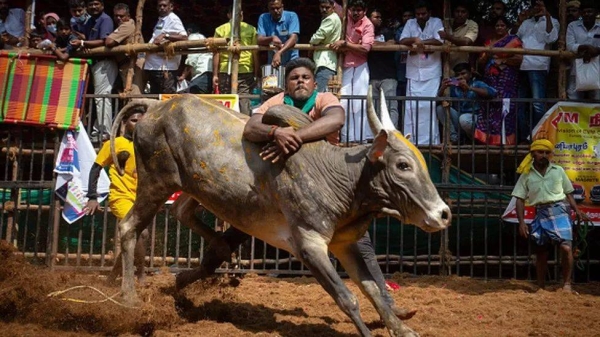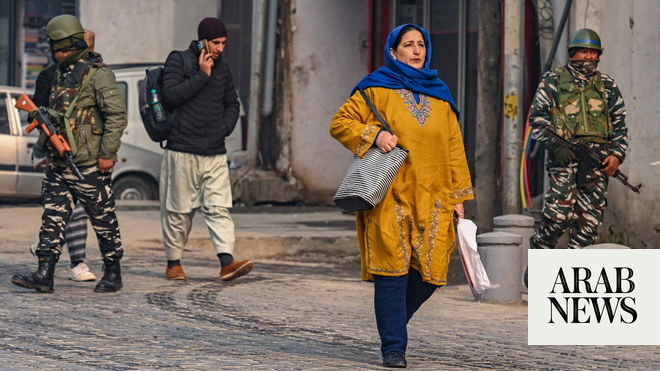
Five-judge bench also ordered statehood to be restored, polls to be held by next September
For many people in Kashmir, the Supreme Court ruling came as a disappointment
NEW DELHI: India’s top court upheld on Monday a 2019 government decision that stripped Kashmir of its special autonomous status in a unanimous ruling that sets the stage for local polls to be held by September next year.
The semi-autonomy of Jammu and Kashmir was granted by India’s constitution until Aug. 5, 2019, when the Indian government unilaterally revoked the relevant provisions under Article 370 and scrapped the region’s flag, legislature, protections on land ownership, and fundamental rights.
The Indian Supreme Court began in August hearings of petitions that were filed over the past four years to challenge the government’s contentious move.
“We don’t find that the president’s exercise to abrogate Article 370 was malafide,” Chief Justice DY Chandrachud said while reading out the judgment.
“Article 370 is a temporary provision. J&K’s Constitution was subordinate to the Constitution of India. Article 370 was introduced to serve a transitional purpose, to serve as an interim process … and the president can abrogate Article 370.”
Indian-controlled Jammu and Kashmir is part of the larger Kashmiri territory, which has been the subject of international dispute since the 1947 partition of the Indian subcontinent into Hindu-majority India and Muslim-majority Pakistan.
Both countries claim Kashmir in full, and rule in part.
Indian-controlled Kashmir has for decades witnessed outbreaks of separatist insurgency to resist control from the government in New Delhi.
With the constitutional change, Jammu and Kashmir was split into two federally governed union territories in a move that was followed by a total communications blackout, severe restrictions on freedom of movement, and detention of local leaders — some of whom remain in jail.
Administrative measures introduced after the abrogation of the special status and statehood have allowed non-locals to settle and vote in the region, raising fears of attempts to engineer demographic change.
The five-judge bench of the Supreme Court also ordered the government to hold elections in the region by Sept. 30, 2024 and to restore its statehood “at the earliest.”
The Supreme Court decision was welcomed by Prime Minister Narendra Modi, who described it as “historic.”
“The verdict today is not just a legal judgment; it is a beacon of hope, a promise of a brighter future and a testament to our collective resolve to build a stronger, more united India,” Modi said.
But for the people of Kashmir, Monday’s verdict came as a disappointment.
“I am very much disappointed. Today’s verdict is totally against our emotions and gives pain to the majority of the people of Jammu and Kashmir,” Aijaz Ahmad, a business professional based in Srinagar, told Arab News.
Yashwant Sinha group, comprising civil society members who have monitored the situation in Kashmir over the last six years, has reported anger, hatred, a sense of political betrayal and alienation among residents of the valley.
“People of the valley with whom I have been talking for weeks are not at all surprised and as a petitioner, I am not surprised either,” said Air Vice Marshal Kapil Kak, a retired officer of the Indian Air Force and one of the petitioners who appealed to India’s apex court.
Kak, who is also a member of Yashwant Sinha group, told Arab News the Supreme Court ruling will “take it further away” from resolving the problem of Jammu and Kashmir and exacerbate the concerns and deep alienation felt by youths of the valley.
Kashmiris were “dejected, humiliated, discredited and disenfranchised” by the Supreme Court ruling, said Nasir Khuehami, president of Kashmir Students Union.
Subhash Chander Gupta, a senior advocate based in Jammu, believes the verdict was a “politically bad judgment” that will create a trust deficit in the region while also further deepening the “distrust between the Kashmiri people and the rest of India.”
The apex court’s decision was “nothing less than a death sentence not only for Jammu and Kashmir but for the idea of India,” said Mehbooba Mufti, former chief minister of Jammu and Kashmir.
“This is the defeat of the imagination of India, the Gandhian India with which Muslims of Jammu and Kashmir, rejecting Pakistan, joined hands with the Hindus, Buddhists, Sikhs and Christians … Today marks the defeat of that idea of India," she said.
Kashmir “continues to be a bleeding humanitarian and political issue” that is “begging redressal,” said Mirwaiz Umar Farooq, a top cleric and pro-freedom leader.
“Those people who at the time of the partition of the subcontinent, facilitated the accession of J&K and reposed their faith in the promises and assurances given to them by the Indian leadership must feel deeply betrayed.”




